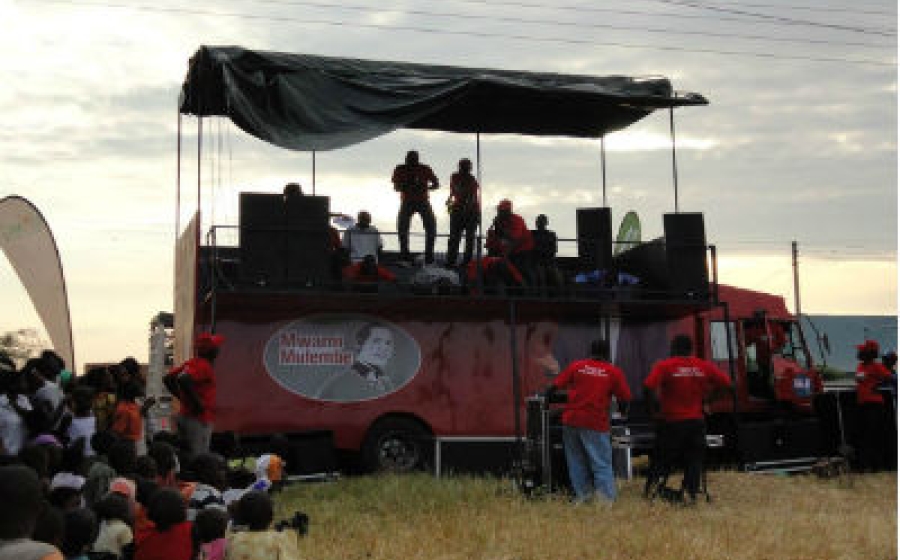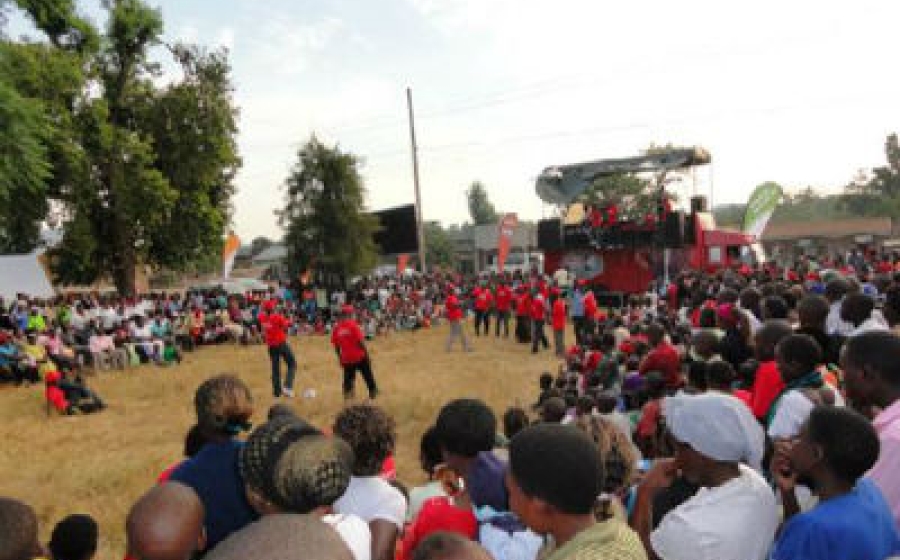Stylish Man/Stylish Living Study

This community randomized adaptive implementation trial, conducted by the Rakai Health Sciences Program (RHSP) is testing a novel demand generation strategy, the “Stylish Man/Stylish Living” (SMLP), to increase uptake of Combined HIV Prevention (CHP) in rural Rakai District, Uganda. CHP encompasses evidence-based biomedical interventions, including safe male circumcision (SMC), antiretroviral therapy (ART) and prevention of mother to child transmission (p-MTCT), as well as behavioral interventions.
CHP may substantially attenuate the HIV epidemic; however, optimal effects require high rates of CHP coverage. Using the President's Emergency Plan for AIDS Relief (PEPFAR) funds, the RHSP provides CHP throughout the district. The ongoing 54-village Rakai Community Cohort Study (RCCS), with community HIV prevalence ranging from 6% to 42%, provides longitudinal data on rates of CHP coverage, including SMC, ART and p-MTCT; risk behaviors; and HIV incidence. Preliminary evidence shows that CHP is reducing HIV incidence in Rakai, but CHP coverage remains suboptimal (as elsewhere in Africa), particularly in men, reducing program impact. Data suggests that CHP supply is not the limiting factor, but that there is a “deficit in demand”.
Extensive qualitative research was conducted and identified barriers to CHP uptake, which were most pronounced among men. Based on these data as well as social cognitive theory and the social ecological model, we developed and piloted an innovative male-focused CHP demand generation strategy was devloped and piloted: the “Stylish Man/Stylish Living Program” (SMLP), which is male-friendly without excluding women. The SMLP strives to “demedicalize” CHP by deemphasizing health-focused messages and instead stressing “taking charge of your life”.
The SMP has two distinct but related elements: (1) mass media (MM) via radio and posters; and (2) community-level mobilization via the “Stylish Event” (SEvent) which includes multimedia and contests with embedded CHP promotion, and immediate access to services. Pilot data are encouraging (e.g. a fourfold increase in the number of male circumcision clients coming to RHSP mobile clinics compared to prior service statistics). Currently, a three-year cluster randomized trial of MM plus SEvents (intervention arm) compared to MM alone (control) is being conducted in 50 RCCS communities aggregated into ~12 clusters per arm (24 clusters in all). The primary outcome will be intent-to-treat community-level rates of CHP coverage (focus on ART, SMC, p-MTCT) by arm. Secondary outcomes will be time trends in HIV incidence, key behaviors and CHP coverage in each arm prior to and during the study.
Investigators:

Maria J. Wawer, MD, (PI)
Ronald H Gray, MD
Rupali Liaye, PhD
Larry Chang, MD, PhD
Larry Moulton, PhD
D Bishai, MD, PhD
D Serwadda, MBChB, MMed, MPH
F Nalugoda, MHS, PhD
G Nakigozi, MBChB, MPH
G Kigozi, MBChB, MPH
A Zikusooka, MA
S Magumba, BA
Duration: August 2014-July 2018
Funding: NIAID R01 AI114438
Publications: N/A. Study is in its first year, with no results to date.
